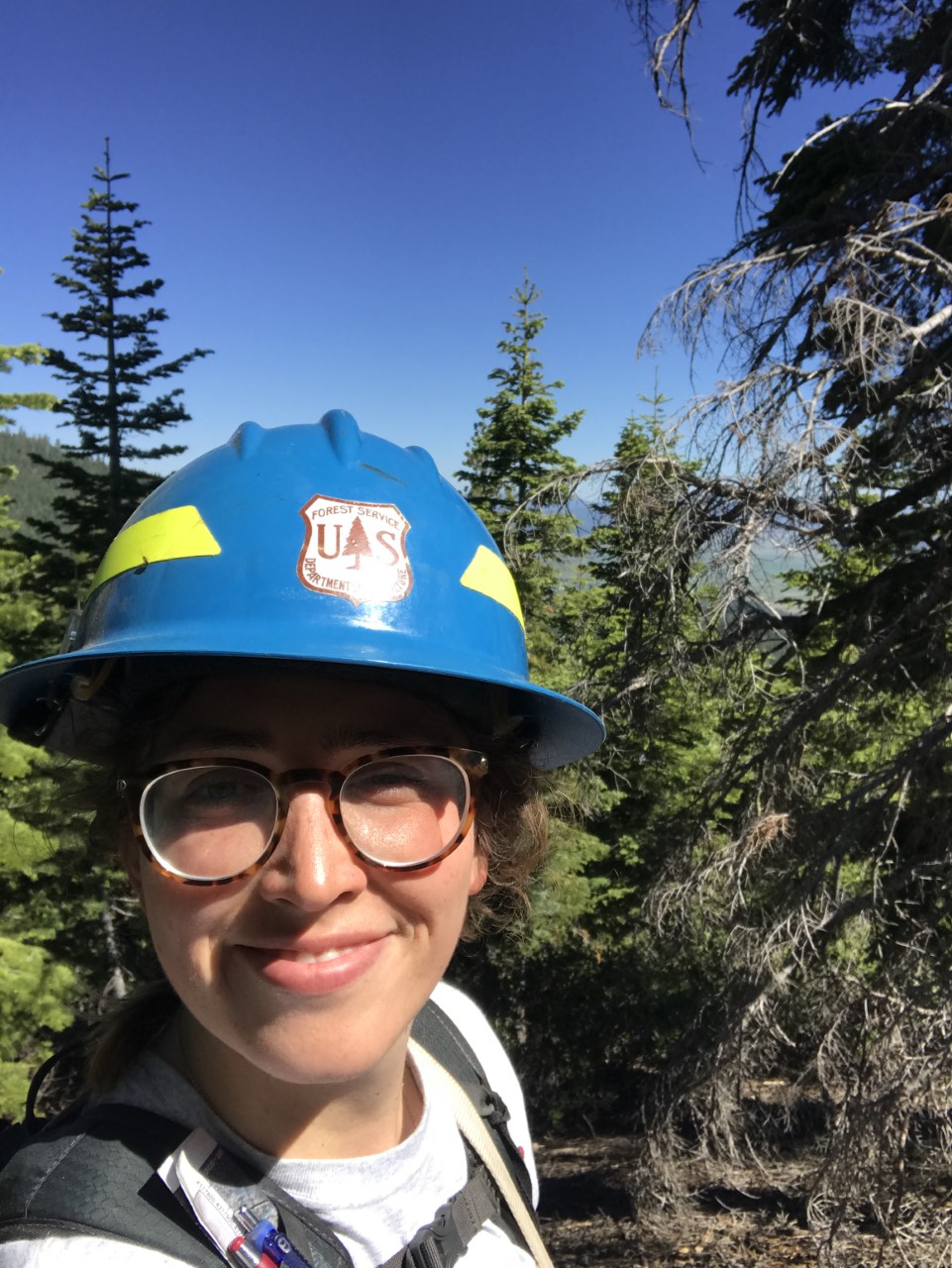Letters from the Field
Peyton Cherry (Anthropology and Geography, '18)
Graduate Student, Oxford University
Peyton Cherry
After graduating from Cal Poly, I was accepted into the graduate program in Anthropology at the University of Oxford. The courses I took in the Social Sciences Department made me fall in love with anthropology and geography, and provided me with the foundation to pursue graduate research. At Oxford, I’ve been delighted to find an international community of passionate students and faculty with backgrounds in linguistics, economics, comparative literature, fair trade, film studies, Tibetan Buddhism and much more. The many seminars, conferences and events in the department, and in Oxford as a whole, offer endless opportunities to engage with whatever one may be interested in. In addition to coursework, I have served as a research assistant on the Ayoreo people in the Paraguayan Chaco. The work is centered around ethno-ornithology and creating an English-Spanish bilingual booklet containing photos and information on the processes and significance of textile weaving techniques among the Ayoreo. Other projects have included creating a poster presentation called “Birds That Tell People Things,” which contains about two dozen birds indigenous to the Paraguayan Chaco accompanied by lines in Ayoreo of the types of calls they make and a longer description in Spanish. I also helped create a booklet on birds of the Amah Mutsun world, containing the Amah Mutsun names of birds native to the Santa Cruz coast of California. This booklet will be used by the Amah Mutsun community to teach youth the names of birds in this language, helping to encourage the use of local terms and knowledge. Further, I was able to participate at a conference at Harvard University where I was a delegate in the Arts, Media and Culture module. The four-day conference was an excellent chance to meet students from around the world who already have impressive lists of accomplishments and ambitious goals for the future. Attending this conference offered additional insight into how important global conversations and social networks are to embracing positive change for the future.
This summer, I interned in Dubrovnik, Croatia as a production assistant for a science camp at a local nongovernmental organization (NGO). This opportunity in Dubrovnik at the Universal Research Institute is important for developing my professional skills and perspectives. Being able to travel to different places for study and work has been incredible, and I look forward to continuing this trend as I figure out my career path. A year since I graduated Cal Poly, I can confidently convey that my postgraduate experiences continue to form an unforgettable journey. It’s a journey composed of a plethora of trials and tribulations, successes and setbacks, that encourage me to press forward along a road that doesn’t have a visible end just yet.
Maddie Noet (Anthropology and Geography, '19)
Archaeologicial Field Technician, Tahoe National Forest

Maddie Noet
In June, I started working for the United States Forest Service in the Tahoe National Forest (TNF) in the Sierraville District office, which is about 30 minutes away from Truckee in northern California. Most of my work in the TNF is archaeological surveying. Currently I am surveying for a fuels reduction project of nearly 10,000 acres in an area relatively close to Sierraville. Fuels reduction projects help to reduce the possibility of catastrophic wildfires by reducing the amount of material available to burn. Before they can reduce the fuels, however, the Forest Service must first ensure what they are protecting other potential resources. This requires extensive archaeological, botanical, wildlife, and other surveys of the area. That’s where I come in. I must record all archaeological and historical sites that are in the area where the fuel reduction work will take place; these include old logging camps, prehistoric sites, and the locations of sawmills, all of which are fairly common in the Sierraville area. The work we do goes toward meeting the requirements of Section 106 of the National Historic Preservation Act, and we do a lot of coordination with the California State Historic Preservation Office in Sacramento to ensure that all protocols are followed to preserve sites. On my job, I record, manage, monitor and collect data in order to make sure that the Forest Service has all of the relevant material related to these types of cultural resources. My job is about 95% outdoors—on the ground walking transects—and the other 5% is office work and data management including work with ArcGIS and previous site records. My training in ArcGIS at Cal Poly really gave me a leg up for the latter job task!
Maddy Hosick (Anthropology and Geography, '18)
Medical Device Business Development Consultant

Maddy Hosick
I’ve been working as a business development consultant for a staffing firm in San Francisco that focuses in the medical device/biotech space. A lot of what I do focuses on the full sales cycle for life science companies, from initial point of contact to selling services and negotiating rates, to closing deals and helping connect medical device engineers with big companies like Johnson & Johnson and Boston Scientific.
I wouldn’t have thought my background in anthropology-geography would ever be relevant to a sales job in life sciences, but I’ve found the most success in my position using my GIS background to generate sales leads. By taking free municipal data, I frequently make new urban maps of medical device companies in the Bay Area that I want to target, and I lay out a strategy to do that based on location, growth indicators and employee size (all included in publicly available municipal data). This strategy has been so effective that I’ve shown my coworkers across our internal brands how to make their own maps, and to look at their sales qualifications from a geospatial perspective. Obviously, my GIS training from the department has really come in handy!


